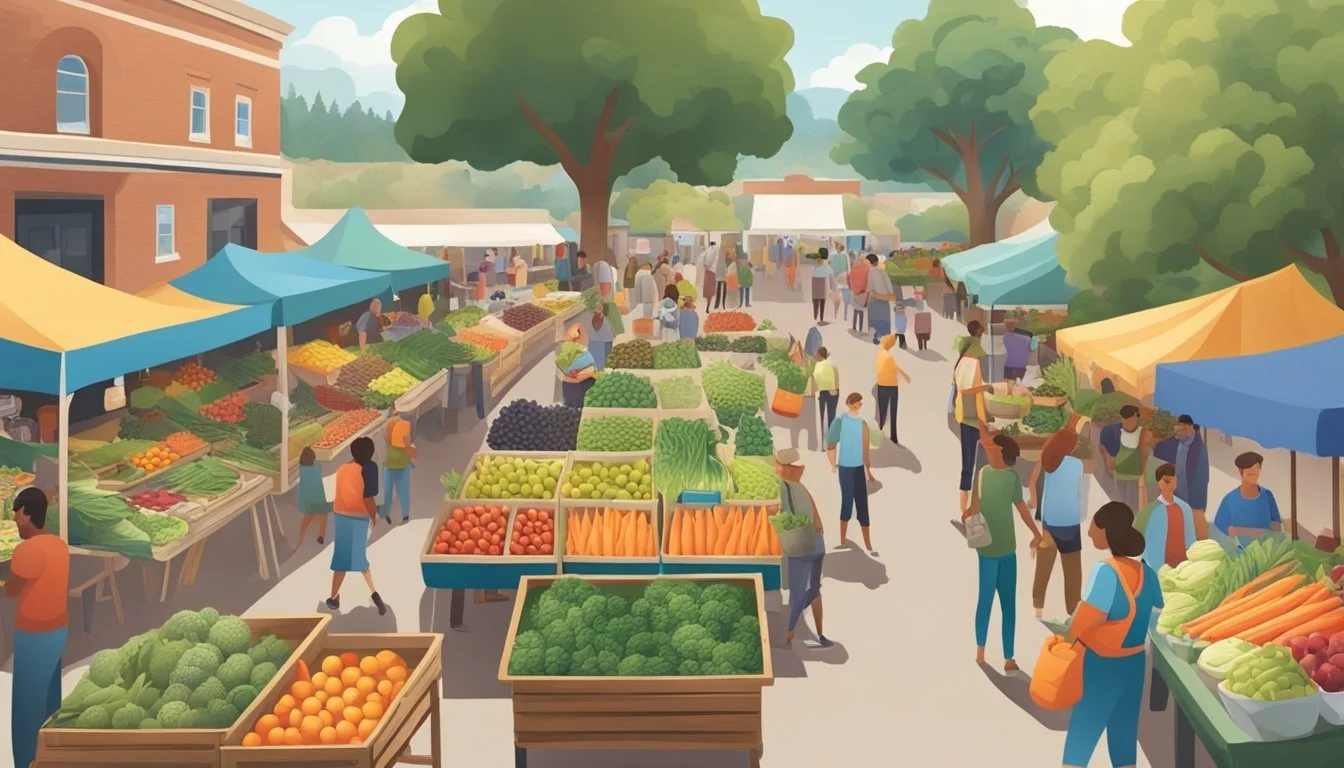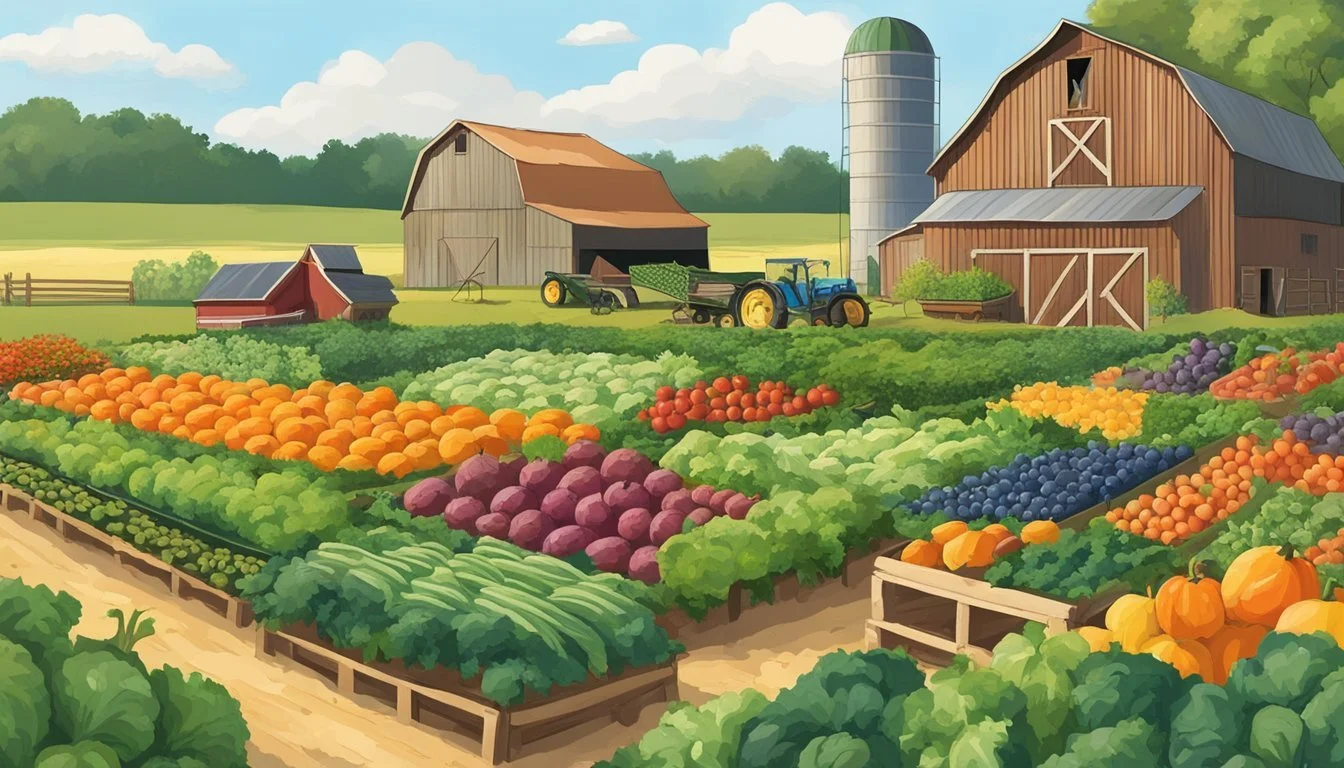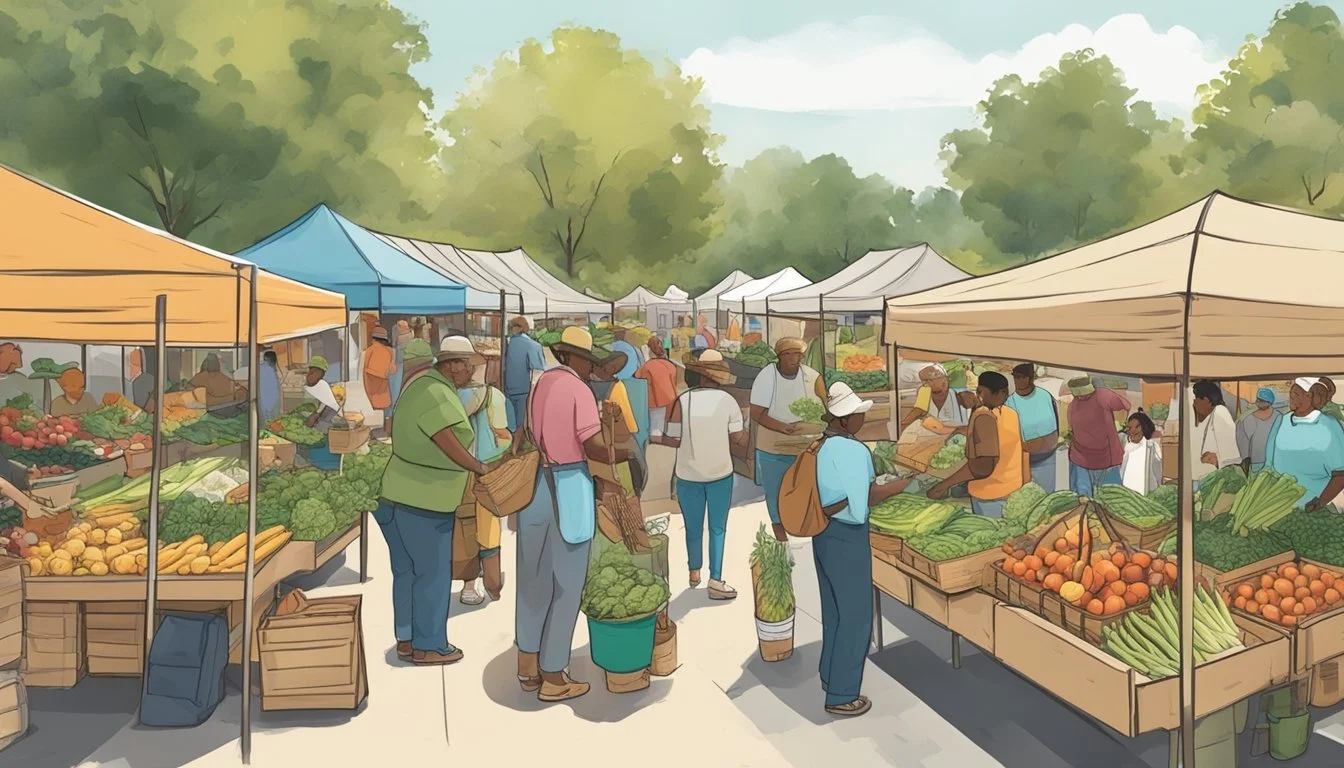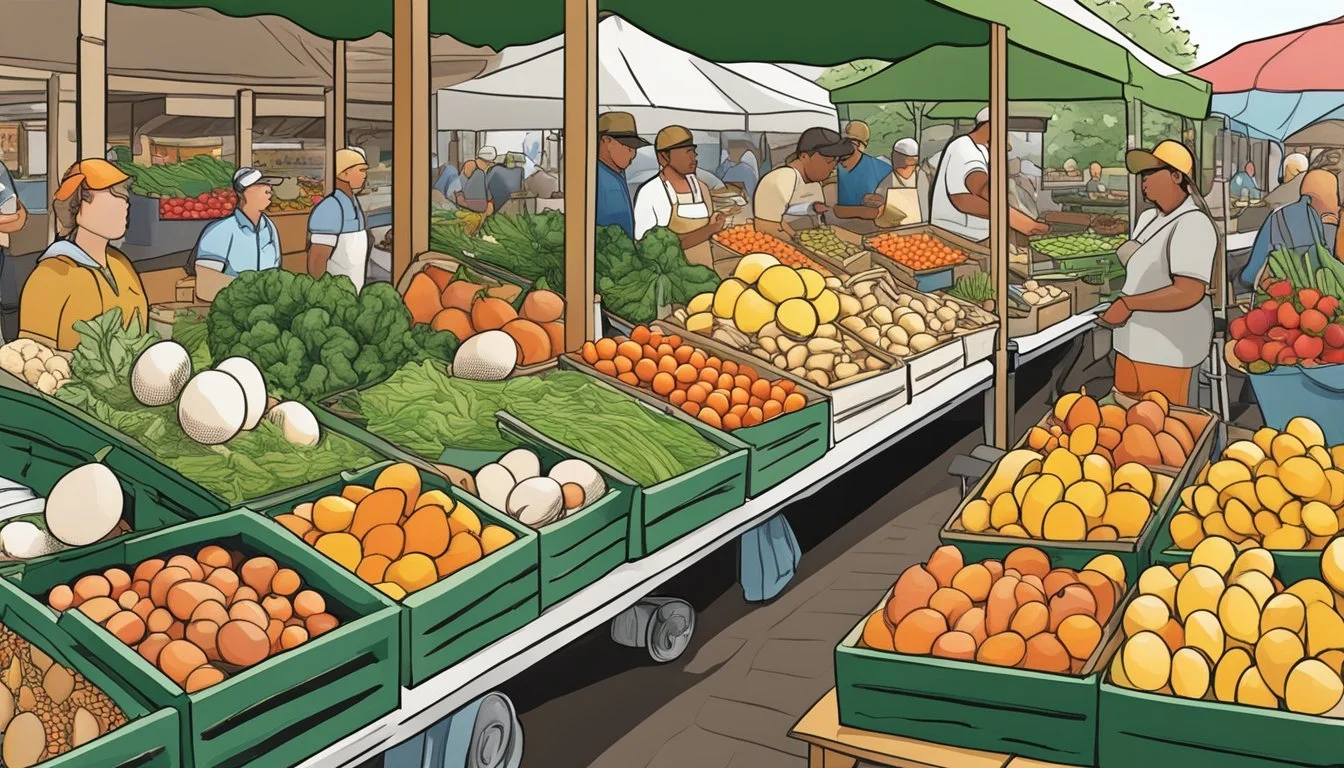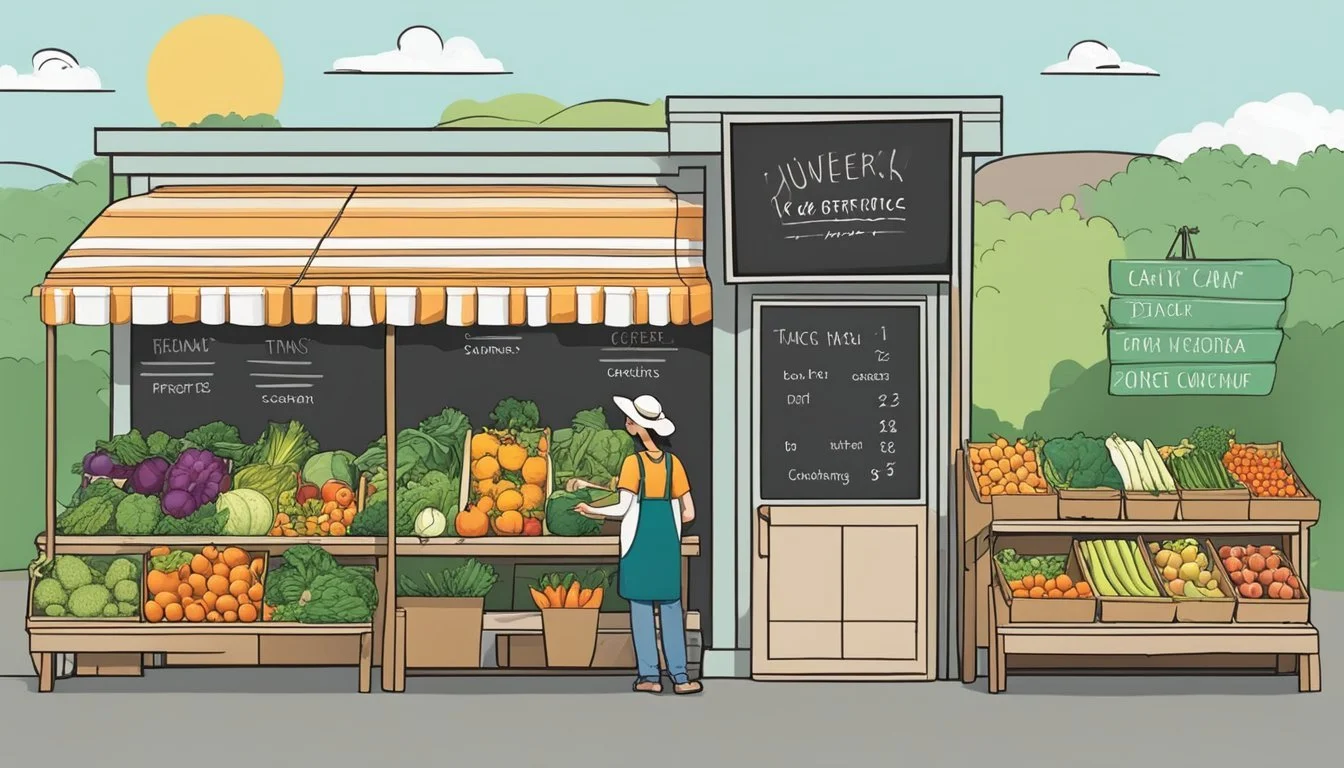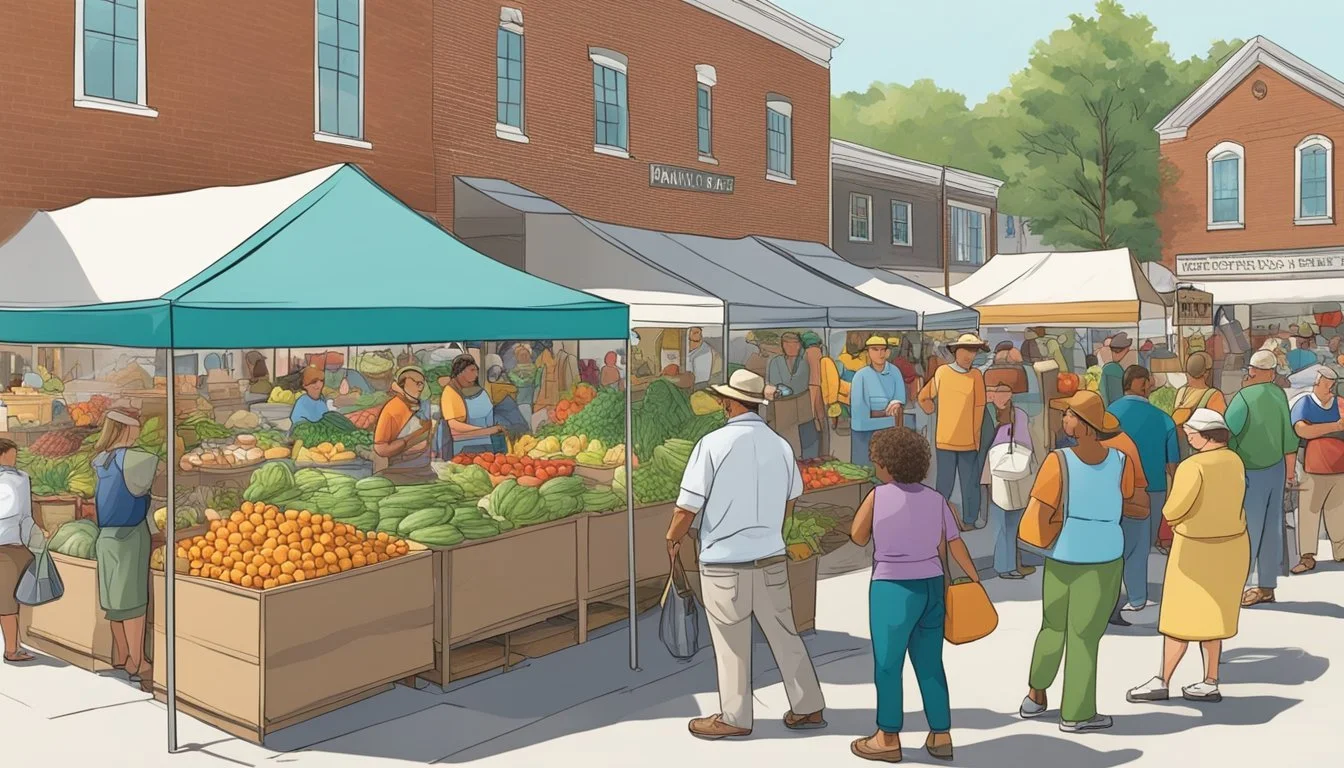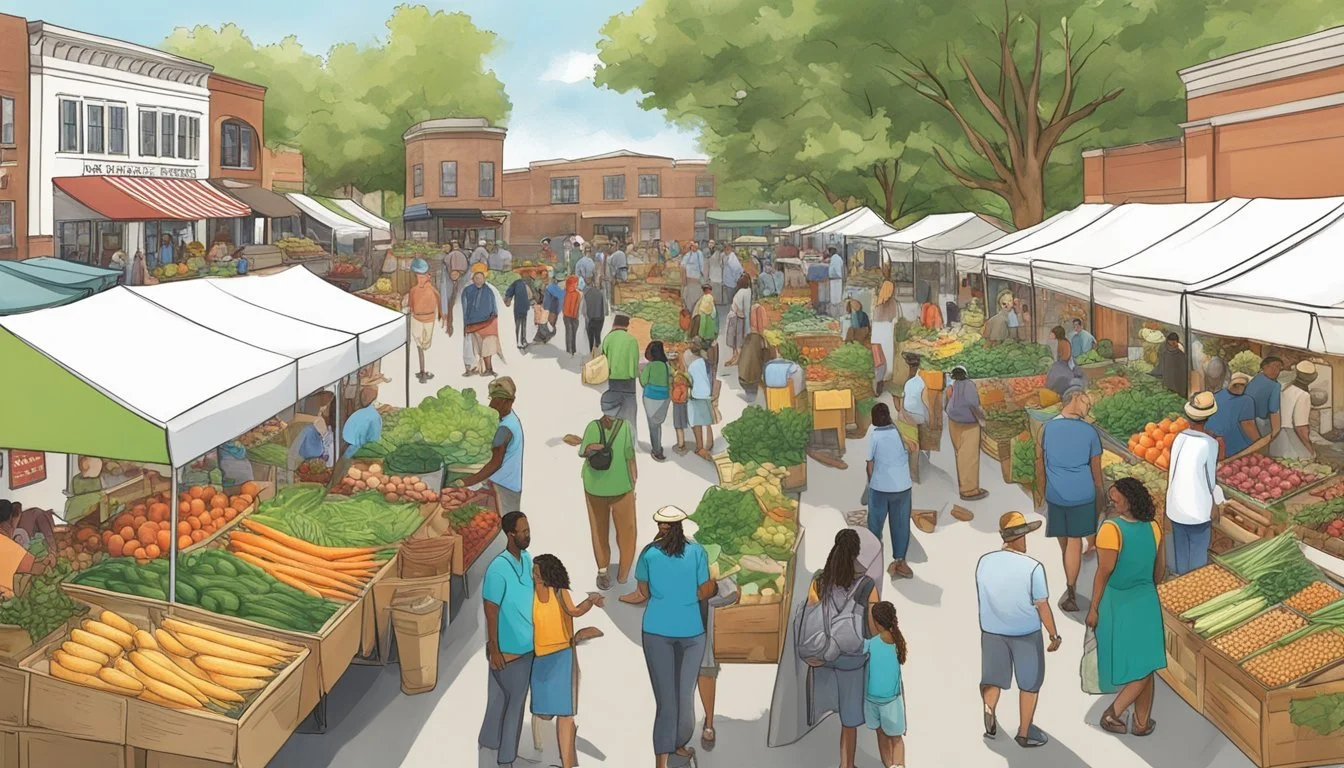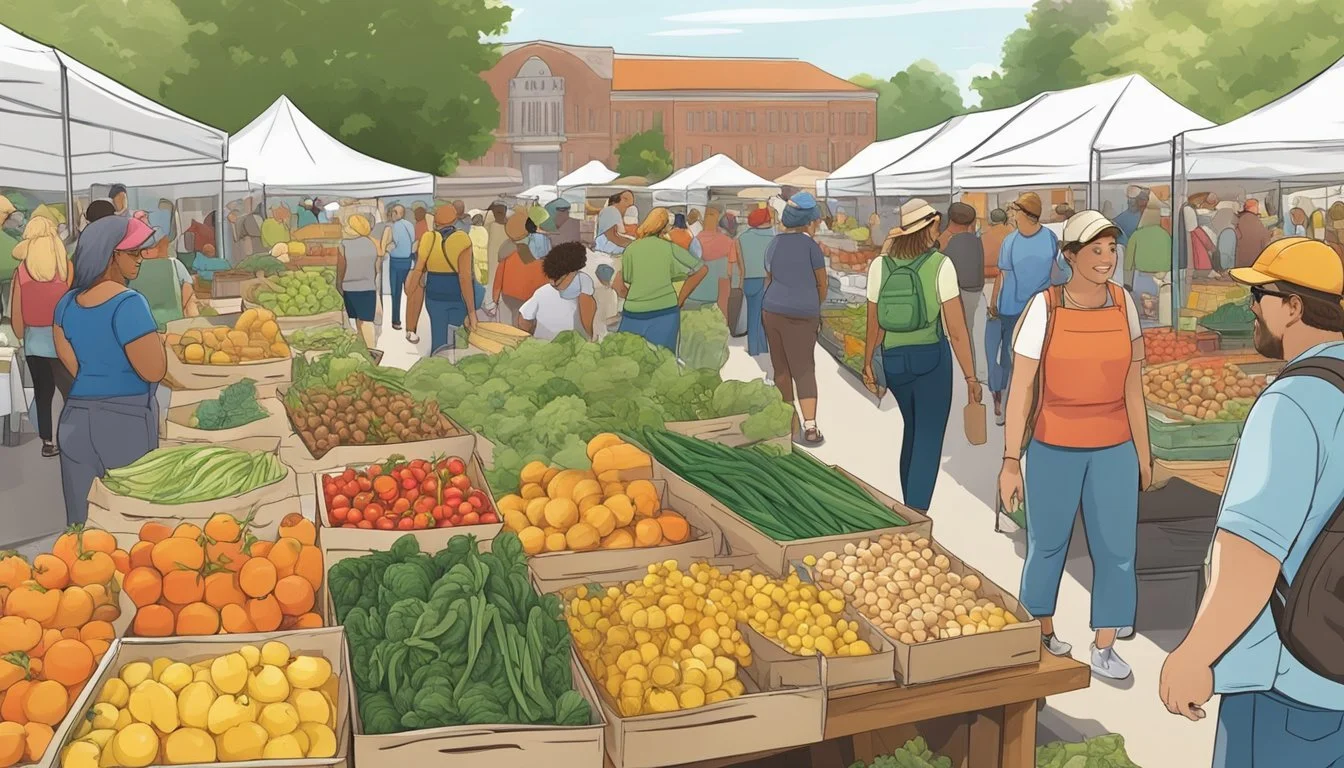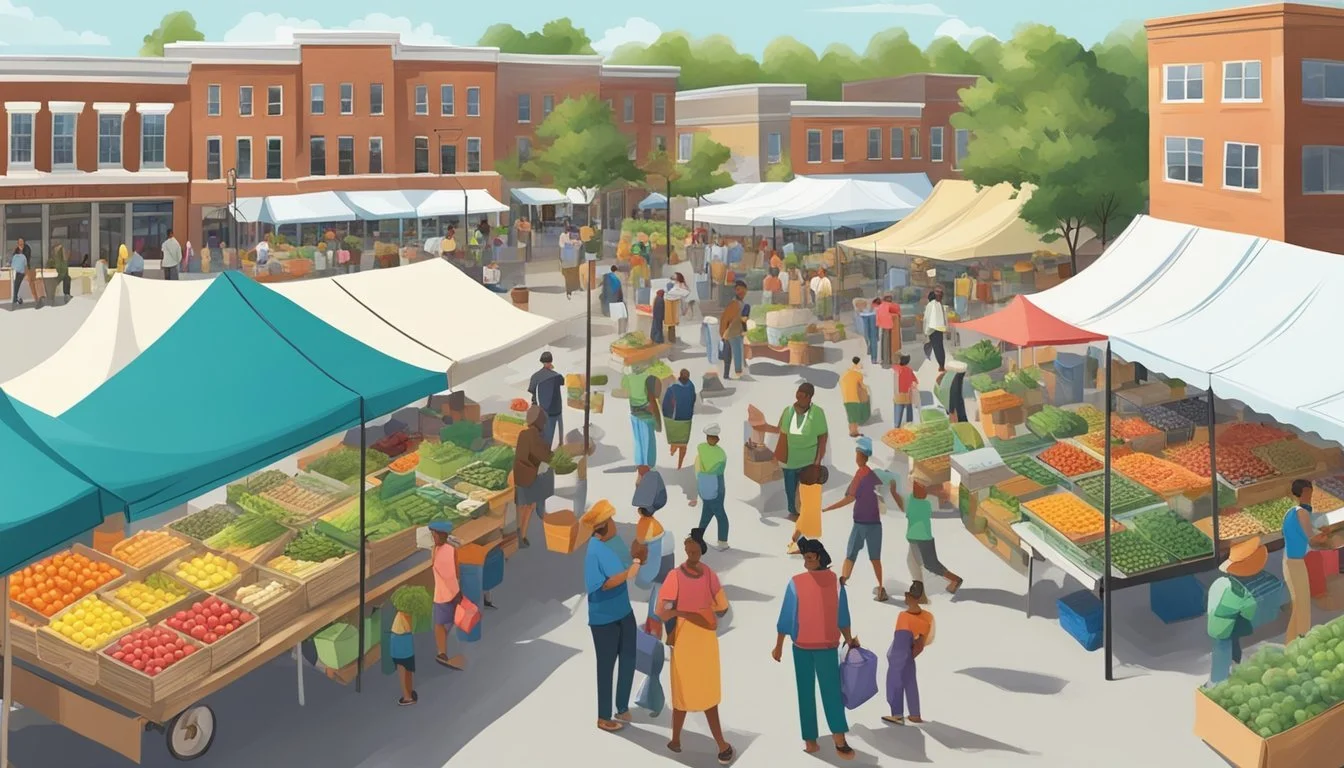Community Supported Agriculture (CSA) in Fayetteville, NC
A Guide to Local Farm Partnerships
Community Supported Agriculture, commonly known as CSA, has rooted itself as a vital part of Fayetteville, North Carolina's local food economy. CSA represents a partnership between local farmers and community members who pledge support to a farm operation, allowing the direct sale of produce shares. Each season, consumers purchase a share of the harvest, providing them with regular distributions of locally grown fruits, vegetables, and other farm products, ensuring fresh, seasonal food sourced directly from their community.
In Fayetteville and the surrounding areas, numerous farms offer CSA subscriptions, connecting residents with a wide array of fresh, seasonal produce. This relationship between farmer and consumer transcends the traditional food buying experience. It fosters a sense of community and shared responsibility for the success of local agriculture. Participants often gain a deeper appreciation and understanding of where their food comes from, who grows it, and the processes involved in getting it from seed to plate.
The CSA model in Fayetteville aligns with wider trends in sustainable farming practices by supporting small-scale agriculture and reducing the carbon footprint associated with transportation of goods. As CSA members, Fayetteville residents are actively contributing to a healthier environment and a more robust local economy, reinforcing the city's commitment to community and sustainability.
Understanding CSA
In Fayetteville, NC, Community Supported Agriculture (CSA) offers a model of food production and distribution that connects consumers directly with local farms. This approach is gaining momentum as it benefits both farmers and consumers.
CSA Explained
A CSA is a partnership where consumers buy shares of a farm’s harvest in advance. In Fayetteville, these shares typically consist of a box of seasonal produce delivered weekly or monthly to subscribers. Producer-initiated CSAs are common in the area, where farmers set up the CSA and invite members to join, while member-initiated CSAs may start by a group of interested consumers who approach a farmer. Additionally, some CSAs in Fayetteville are multiple-producer CSAs, where products from various local farms are offered.
Purchase: Consumers pay an agreed amount, often ranging from $400 to $700 annually.
Benefits for consumers: Fresh, local produce; a deeper understanding of food sources.
Benefits for farmers: Upfront capital, reduced marketing costs, closer customer relationships.
The History of CSA
The concept of CSA started in the 1960s in Germany, Switzerland, and Japan due to concerns about food safety and the urbanization of agricultural land. It reached the United States in the 1980s and has since grown in popularity. In Fayetteville, as in other parts of the country, CSAs have strengthened the local food movement by reinforcing the connection between farmers and community members.
1960s: Origin of CSA concept.
1980s: Introduction to the U.S.
Present: Growth in local food movements.
Types of CSAs
In Fayetteville, several types of CSAs are available, adapting to the needs of local consumers and producers:
Producer-Initiated CSAs:
Single farm operation.
Direct consumer subscription.
Member-Initiated CSAs:
Formed by consumers.
Partnership with farmers.
Multiple-Producer CSAs:
Collaboratives of many farms.
Offer a wider variety of goods.
Organization-Initiated CSAs:
Initiated by a non-farm organization.
May provide logistical, marketing, and administrative support.
Each type provides a different approach to fostering local agriculture and can cater to the specific demands of the Fayetteville community.
Local CSA Farms in Fayetteville
Fayetteville, NC, offers residents several opportunities for participating in Community Supported Agriculture. These CSA farms allow individuals to buy shares of the season's harvest directly from local producers.
Directory of CSA Farms
Residents seeking to support local agriculture in Fayetteville can access a comprehensive list of CSA farms through resources like LocalHarvest. This directory provides information on various local farms that supply fresh, organically grown produce to the community. A CSA directory offers an easy way for consumers to find their nearest farm, learn about the produce available, and understand the terms of participating in the CSA program.
Featured Local Farms
Terrace Ridge Farm
Location: Between Vass and Carthage, NC
Offerings: High-quality, pasture-raised beef, coastal bermuda horse hay
Notable Practices: Farm-to-freezer finished beef
Fayetteville Farmers Market
Location: Fayetteville, NC
Offerings: Variety of fresh local produce
Special Note: Features a community farmers market prominent for its local goods
Simply Us Farm
Location: Sanford, NC
Offerings: Fresh, locally grown fruits and vegetables
CSA Programs: Participates in several CSA programs offering fresh produce to community members
How CSAs Work
Community Supported Agriculture in Fayetteville operates through a symbiotic relationship between local farmers and the community. Members subscribe to a farm’s output, receiving a portion of the harvest through a structured farm share system, often with flexible payment plans.
Membership and Subscription
Interested individuals can become members of a CSA by subscribing to the produce of a local farm, where a membership implies a commitment to support a designated farm for an entire season. Memberships provide farmers with a consistent consumer base and enable customers to directly support local agriculture.
Farm Share Structure
Upon subscribing, members receive shares of the farm’s harvest. These shares are prearranged quantities of farm products delivered weekly or monthly. The full shares are suitable for families or individuals who consume a significant amount of produce, whereas smaller share sizes are also offered to cater to different household needs.
Share Size Suitable For Full Share Families or high consumption Half Share Small households or couples Personal Share Individuals
Payment Plans
CSAs in Fayetteville commonly provide diverse payment plans, allowing members to pay in advance for the season either in full or through instalments. These payment structures help farms with early season capital and make CSA memberships more accessible to a range of households.
Payment Type Description Lump Sum Payment Full payment at the beginning of the season. Instalment Payments Payment broken into segments throughout the season.
Benefits of Joining a CSA
Joining a Community Supported Agriculture (CSA) program in Fayetteville, NC offers a symbiotic relationship between local farmers and consumers. This model ensures access to fresh local food while supporting the community's agricultural landscape.
Benefits for Consumers
Consumers enjoy a multitude of advantages when they become members of a CSA.
Access to Fresh Produce: Members receive a diverse array of fresh fruits and vegetables, often picked within 24 hours of delivery.
Enhanced Flavor and Nutrition: The local produce is typically more flavorful and nutrient-rich than store-bought counterparts, which often travel long distances.
Organic Options: Many CSA farms in Fayetteville offer organic produce, which means consumers can enjoy food free from synthetic pesticides and fertilizers.
Economic Savings: While the upfront cost might seem high, the overall season often provides consumers with cost savings compared to buying equivalent organic and local food at retail prices.
Learning Opportunities: CSA membership often comes with the chance to learn more about where and how the food is grown.
Benefits for Farmers
Farmers also gain significantly from the CSA model.
Financial Support: Upfront payments from CSA members provide farmers with much-needed early-season capital to cover initial costs.
Risk Mitigation: By selling directly to consumers, farmers can reduce the risk of unsold produce.
Community Engagement: CSAs allow farmers to build direct relationships with their customers, fostering community support and loyalty.
Market Assurance: Commitments from CSA members guarantee a stable market for a portion of their harvest, enabling better planning and crop rotation based on guaranteed sales.
Environmental Stewardship: CSA practices often encourage sustainable and organic farming by financially supporting farming methods that are environmentally friendly.
CSA Products and Offerings
In Fayetteville, North Carolina, Community Supported Agriculture programs offer a robust selection of farm-fresh products. They connect consumers directly to the seasonal harvest and locally produced goods.
Variety of Produce
CSAs in Fayetteville are known for their diverse array of vegetables and fruit, ensuring a colorful selection of produce throughout the growing season. Members might receive seasonal vegetables such as tomatoes, peppers, cucumbers, and lettuce. Additionally, fruit offerings can include items like strawberries, blueberries, and apples, contingent on the harvest calendar.
Specialty Products
Apart from the standard produce, Fayetteville's CSA boxes can feature a variety of specialty products. Pasture-raised meats such as beef and poultry are common additions. Members can enjoy eggs from free-range chickens alongside cheese crafted by local artisans. Some CSA farms might also include herbs and flowers, adding a fragrant touch to their weekly or monthly shares.
Seasonal Availability and Scheduling
In Fayetteville, NC, Community Supported Agriculture operates on a seasonal cycle that is deeply connected with local planting and harvesting times. Subscribers can expect a variety of produce that aligns with the region's agricultural calendar.
Seasonal Eating Guide
Members of a CSA in Fayetteville can look forward to eating with the seasons. The freshest produce becomes available as follows:
Spring: An array of leafy greens like spinach and kale, as well as root vegetables such as radishes and carrots.
Summer: A bountiful selection of fruits and vegetables including tomatoes, cucumbers, squash, peaches, and berries.
Fall: The harvest brings hearty staples like potatoes, apples, and pumpkins alongside a variety of squashes.
Winter: Although growth slows, winter-friendly crops like collards, turnips, and certain cabbages may still be available.
Members should be aware that weather conditions play a significant role in what and when produce is available.
Planting and Harvesting Calendar
A focused planting and harvesting calendar ensures that Fayetteville CSA members receive the freshest produce possible. It generally follows this schedule:
Planting
Early spring for summer crops
Late summer for fall and winter crops
Harvesting
Starts in late spring and continues into fall
Some winter harvesting is possible for cold-resistant crops
CSA farmers in Fayetteville meticulously plan their planting schedules to guarantee a continuous supply of fresh produce for their members throughout the designated seasons.
Management and Operations
Effective management and operations are crucial aspects of running a successful Community Supported Agriculture (CSA) program. This includes strategic business planning, efficient marketing strategies, and the streamlining of distribution logistics.
Running a CSA Business
In Fayetteville, a CSA farm must develop a solid business plan which typically involves determining the budget, projecting cash flow, and understanding both the costs and anticipated revenues. Financial reports are essential tools that allow farmers to track their performance and manage their finances throughout the growing season.
Marketing and Recruitment
To successfully recruit members, Fayetteville CSA farmers utilize targeted marketing efforts that may include:
Online platforms: Building a strong web presence through a dedicated website and social media channels.
Local events: Engaging with the community at farmers' markets and local events.
Community relationships: Establishing partnerships with local businesses to reach potential members.
Data from marketing and recruitment efforts should be carefully analyzed to help refine strategies and ensure that member retention rates are high.
Distribution Logistics
Fayetteville CSA operations focus on efficient distribution logistics to ensure the prompt delivery of fresh produce to members. This involves:
Creating a distribution schedule that clearly outlines when and where products will be delivered.
Selection of convenient pick-up locations that are accessible to a majority of members.
Utilizing management software to track distribution data, which aids in optimizing routes and reducing waste.
Community Involvement
Community Supported Agriculture (CSA) in Fayetteville, NC thrives on the active engagement of residents. Opportunities for volunteering and education are central to strengthening the bond between farms and the local community.
Volunteering Opportunities
Fayetteville's CSA programs often depend on volunteers to support daily operations and special events. Individuals can offer their time at Terrace Ridge Farm, for example, contributing to the upkeep of sustainable farming practices and the production of high-quality, pasture-raised beef. Volunteers gain first-hand farming experience, and through partnership, local farms benefit from additional resources.
Terrace Ridge Farm:
Tasks: Assisting with animal care, farm maintenance
Benefit: Gaining agricultural knowledge
Educational Programs
Education is a cornerstone of CSA models in Fayetteville, which often include programs designed not only for adults but also for kids. These programs aim to teach participants about sustainable agriculture, food sources, and the importance of local farming.
CSA Memberships:
For kids: Interactive farm visits, planting workshops
For adults: Seasonal food preparation courses, farm planning discussions
Through structured educational programs, members of the community develop a caring relationship with local farmers and a deeper understanding of where their food comes from.
Consumer Guidance
When navigating the world of Community Supported Agriculture (CSA) in Fayetteville, NC, consumers should focus on aligning their food preferences with a CSA's offerings and understand the commitment of CSA membership.
How to Choose a CSA
Research: Consumers should investigate local CSA options to find a farm whose products match their consumption habits. They might consider variety and volume of produce, inclusion of meats, cheeses, or other products, and the farm's production practices.
Assessment: Prospective members must assess their household's ability to incorporate the weekly or monthly box of farm products into their meals. This might also include considering storage space and cooking skills.
Questions to Ask:
What types of products are included in the CSA shares?
How does the share size fit with the consumer's household needs?
What are the farm’s practices regarding sustainability and food safety?
Sign-Up Process:
Sign up often involves paying for the entire season upfront, which can range from $400-$700 annually.
Some CSAs may offer installment payment plans.
Tips for New CSA Members
Expectation Management: New members should anticipate variation in product types and amounts. They should be ready to explore new recipes and ways to use possibly unfamiliar ingredients.
Communication: They are encouraged to communicate regularly with CSA providers for updates and to share their feedback.
Advantages of Membership:
Potential cost savings on high-quality, local produce compared to retail prices.
Strengthening local food systems and forming a relationship with the farmer.
Utilization Tips:
Plan meals around the CSA share contents to minimize waste.
Share or preserve excess produce to manage the occasional abundance.
CSA Innovations
Community Supported Agriculture in Fayetteville, NC is experiencing a phase of transformative growth, focusing on adapting innovative practices and fostering a supportive network aimed at sustainability and regenerative farming.
Emerging Trends
The CSA landscape in Fayetteville is shifting with a clear inclination toward regenerative agricultural practices. These practices not only improve soil health and biodiversity but also enhance the water cycle, crucial for the longevity of farming. Local CSAs are increasingly integrating these methods to their farming techniques as part of their contribution to a more sustainable food system. They are moving beyond organic, using cover crops, reduced-tillage systems, and crop rotations to rebuild soil organic matter and restore degraded soil biodiversity.
CSA Innovation Network
The CSA Innovation Network serves as a collaborative hub for CSA farms in and around Fayetteville. It aims to enhance information sharing and joint problem-solving, enabling farmers to innovate and adapt more efficiently to consumer needs and environmental challenges. This network supports:
Knowledge Exchange: Sharing of best practices and methods among local CSA farms.
Resource Sharing: Pooling of tools, seeds, and other resources to reduce costs and improve access.
Joint Marketing Efforts: Coordinated initiatives to expand market reach and consumer awareness about the benefits of CSA membership.
By prioritizing collective growth and sustainable farming, Fayetteville's CSAs are at the forefront of a movement that supports both the land and the local community.
Resources and Further Reading
This section provides a curated list of resources for individuals seeking to learn more about Community Supported Agriculture (CSA) in Fayetteville, NC, as well as channels to connect with community networks and subscribe to relevant newsletters.
Resource List
USDA National Agricultural Library: This library contains a comprehensive collection of agriculture-related information, including reports and resources specifically on CSA.
NC State Extension: Providing a wealth of knowledge, the NC State Extension offers detailed guides and resources on CSA models. Readers can access various tools to understand and participate in local CSA programs.
LocalHarvest: A database where one can find nearby CSAs, including those in and around Fayetteville, NC.
Resource Name Description Access Information USDA Agricultural Library Reports and resources on CSA practices. USDA Library NC State Extension Educational materials and extension services for CSA. NC Extension LocalHarvest Directory of local CSAs with user reviews and ratings. LocalHarvest
Community Networks and Newsletters
Local CSA Newsletters: Many farms operating CSAs in Fayetteville offer newsletters that subscribers can sign up for to receive updates, seasonal information, and news.
Community Agriculture News: Platforms and social media groups can keep individuals informed about CSA initiatives and community events in the Fayetteville area.
Name Description Subscription Link CSA Farm Newsletters Regular updates from local CSAs. Sign Up Agriculture Community News Information on CSA-related events and initiatives. Subscribe

